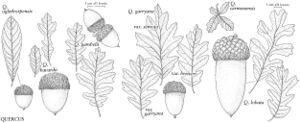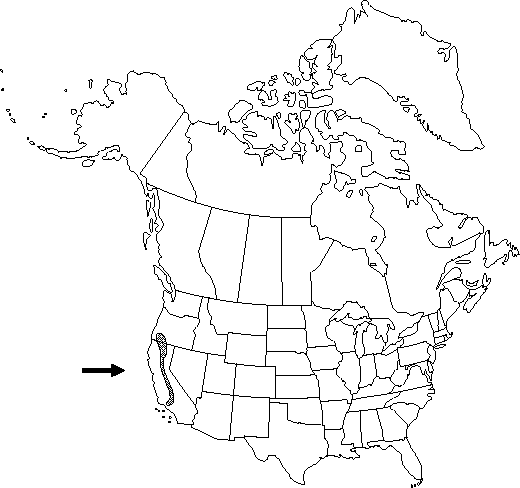Difference between revisions of "Quercus garryana var. semota"
Fl. Calif. 1(2): 354. 1909.
FNA>Volume Importer |
(No difference)
|
Revision as of 19:37, 26 July 2019
Shrubs or small multitrunked trees, spreading and clonal, to 1-5 m. Twigs reddish-brown or tan, sparsely puberulent, without spreading hairs. Buds brown or light or brown, ovoid, 2-5 mm, sparsely glandular-puberulent. Leaf-blade abaxially light or yellowish green, waxy, not conspicuously velvety, but sometimes tightly felty, sparsely to densely covered with semierect 6-8-rayed hairs 0.1-0.3 mm.
Phenology: Flowering spring.
Habitat: Dry slopes in open montane conifer forests and chaparral
Elevation: 1250-1800 m
Discussion
Quercus garryana var. semota is common on the west slope of the Sierra Nevada and north slope of the Tehachapi Mountains. Its northern limit appears to be on dry volcanics in southern Oregon. The fruit of this variety is often rather large, falling in the range of that seen in Q. garryana var. garryana. Some material with elongate-oblong acorns suggests introgression from Q. lobata may occur in isolated localities at the lower reaches of Q. garryana var. semota and higher limits of Q. lobata.
Selected References
None.

